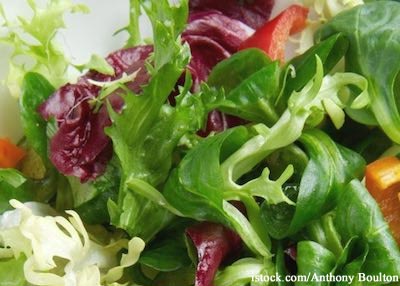Results on a test performed by the U.S. Food and Drug Administration (FDA) on a bagged salad made at Dole’s facility in Springfield, Ohio confirm the presence of Listeria.
 The FDA’s finding, follows tests performed last week by the Canadian Public Health Agency confirming Listeria in bagged salad from the Dole Springfield plant. The company told U.S. health officials that it stopped production at the plant on January 21, 2016 and began the process of withdrawing products made at the plant from the market. On January 27, 2016, the company stated it was recalling all packaged salads produced in its Springfield, Ohio, facility for possible Listeria contamination.
The FDA’s finding, follows tests performed last week by the Canadian Public Health Agency confirming Listeria in bagged salad from the Dole Springfield plant. The company told U.S. health officials that it stopped production at the plant on January 21, 2016 and began the process of withdrawing products made at the plant from the market. On January 27, 2016, the company stated it was recalling all packaged salads produced in its Springfield, Ohio, facility for possible Listeria contamination.

Recalled salads have a ode beginning with the letter “A” under the “Enjoy By” date.
Consumers should not eat, and restaurants and retailers should not serve or sell these recalled packaged salads which can be identified by the letter “A” at the beginning of the manufacturing code on the package. They were sold under the following six brand names: Dole, Fresh Selections, Simple Truth, Marketside, The Little Salad Bar and President’s Choice Organics. The types of salads recalled under these brands include: American, arugula, Asian, bacon and bleu cheese, BBQ Ranch, Caesar, chipotle and cheddar, coleslaw, field greens, garden, iceberg, Italian blend, kale, lettuce, Mediterranean, romaine, sesame ginger, Southwest, spinach, spring mix, sunflower and vegetable blend.
In the U.S., the recalled salads were sold at Giant, Kroger, ALDI, Price Chopper, Walmart, Fred Meyer, Schnucks, Meijer, ShopRite, Stop n Shop, Food 4 Less, Jay C, FoodsCo, PriceRite and other stores.
Consumers who have purchased these products should put the salad bag inside a plastic bag that can be sealed and return it to the place of purchase or throw it away. Wash hands well with soap and water after handling.
Areas inside refrigerator or around the kitchen that came into contact with the salad should be cleaned with a mild bleach solution. Cutting boards, serving pieces, and utensils used to serve or prepare the salads should also be sanitized A dishwasher is the best way to sanitize utensils. If that is not an option, use hot water and soap, followed by a solution of one tablespoon chlorine bleach to one gallon of hot water. Then wash your hands again.
Consumers who have eaten the recalled salads should monitor themselves for symptoms of a Listeria infection which can take up to 70 days to develop. They include: nausea and diarrhea followed by fever, headache, stiff neck, confusion, loss of balance, and muscle aches. See a doctor and mention exposure to Listeria through this recalled salad if you do experience these symptoms.
Young children, seniors, pregnant women and people with compromised immune systems are most at risk for Listeria infections. Among pregnant women, Listeria can cause miscarriage, stillbirth, premature delivery and illness in newborns.
At this time, five cases have been reported from New York, four have been reported from Michigan, and one each has been reported from Connecticut, Indiana, Massachusetts, Missouri, New Jersey and Pennsylvania.
Case patients in the U.S. range in age from 3 to 83 years sold and the median age is 64. Seventy-three percent of those sickened are female one of whom is pregnant.
Food Poisoning Bulletin previously reported there were four deaths in Canada associated with the Dole Listeria outbreak. According to the Public Health Agency of Canada, three people sickened with Listeria monocytogenes have died, however their cause of death has not been linked to Listeria.
In the United States, The Centers for Disease Control lists one death associated with the outbreak, however the details of that death have not been released.
We apologize for the error.




